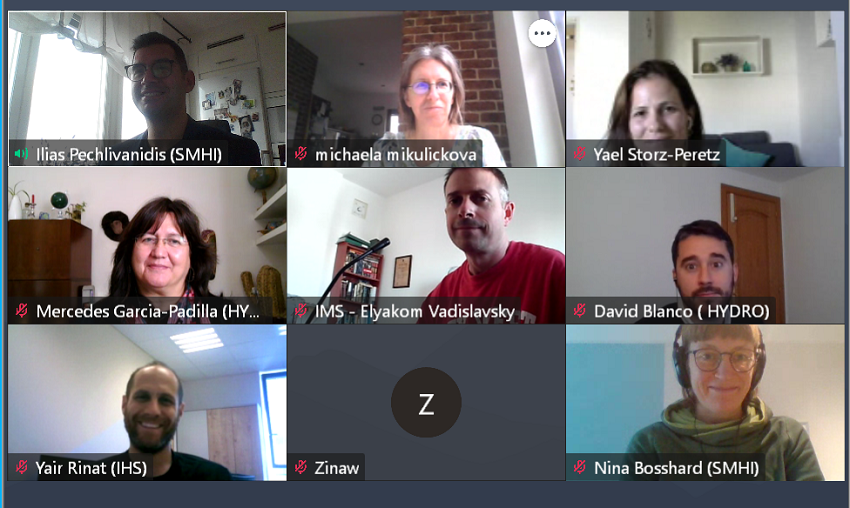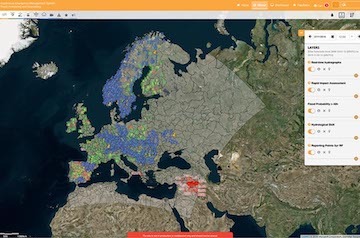
by EFAS Dissemination centre
On 19 November 2020 the EFAS Dissemination Centre and the Hydrology Data Collection Centre provided training for the Israel - Israel Hydrological Service (IHS) EFAS Partner and the Israel Fire & Rescue Authority (IFRA), which is an EFAS Third Party partner.
The training aimed to provide:
- Introduction to the EFAS service and existing products, including a presentation on the new products and the 6-hourly calibration
- Training on how to use the EFAS-IS and extract hydro-meteorological information for forecasted extreme events
- Demonstration on how to provide feedback for received notifications
- Reference on existing hydrological and meteorological data around the country and how these can be shared.
Due to the Covid-19 pandemic situation, this one-day training was provided on-line. The training was held by Ilias Pechlivanidis and Michaela Mikulickova from the EFAS Dissemination Centre and Mercedes García Padilla and David Blanco de Córdova Muñoz from the EFAS Hydrological Data Collection Centre. Besides participants from both Israeli partners, also a delegate from the Israeli Meteorological Service (IMS), who is in charge of R&D remote sensing and nowcasting, attended the workshop.
Some of the participants had previous experience in using the EFAS-IS, whilst for others the training was the first introduction to the service and its products.
The meeting started with overviews of activities at IHS and IFRA. The ongoing effort of IHS is concentrated on:
- Providing flood impact maps.
- World-wide review of flood centres and their models/tools.
- Improving hydrological models and tools.
- Using precipitation ensembles in the hydrological model scheme.
- Improving nowcasting using artificial intelligence to detect rainfall thresholds.
IFRA showed the decision support tools for severe weather events. IFRA runs a fully gridded hydrological model and based on its results creates insights and alerts. Overall, there is a high interest on impact forecasting. IFRA is targeting a proactive approach, identifying the hazard in advance in space and time in order to take improved actions.
A case study in the Lachish river showed that EFAS v4.0 forecasts for 2020/11/04 had very good performance in relevance to observations. However, for the same event in the region of the Ayalon river, near the city of Tel Aviv, the model (both Lisflood and the national model) did not perform well.
The EFAS Dissemination Centre introduced EFAS (consisting of the EFAS general information, information about LISFLOOD model, probabilistic forecasting, meteorological inputs, EFAS thresholds, EFAS notifications, and flash floods) followed by a discussion on the performance of the different EFAS products.
Moreover, the EFAS Hydrological Data Collection Centre presented the operations and workflows with regard to data transfer, data harmonization, data quality control and validation, collaborations in EFAS products such as reports and bulletins, incident management and partner communications.
During the afternoon session, the EFAS Dissemination Centre presented the new EFAS products (rapid impact assessment and rapid flood mapping, sub-seasonal and seasonal outlooks, and 6-hourly calibration), and guided the partners on how to give feedback to the flood notifications sent.
The hands-on session on the EFAS-IS gave everyone the opportunity to explore all layers of the EFAS Interface.
At the end of a very intensive day conclusions were summarized. Israeli partners are more familiar with the EFAS now and can explore it according to the needs of their services.

